A troubled province
In the Democratic Republic of the Congo, a decades-long conflict in the east of the country has caused hundreds of thousands to flee their homes. Ituri, one of the country’s 26 provinces, has made headlines in recent months for the Ebola epidemic with 3,243 confirmed cases.
But Ebola is not the only challenge that Ituri province is currently facing. It is also the centre of a complex conflict involving frequent clashes between the two main ethnic groups. Both factions have been accused of large-scale massacres and other atrocities such as rape, arson and looting.
Self-defence militias have been formed by both sides to defend villages from attacks. However, according to victims, these militias often indiscriminately raid villages, including those they claim to protect, looting them for food and other resources.
The violence and instability in the villages is causing civilians to flee their homes in search of safety. According to figures released by the UN refugee agency, over 300,000 people in Ituri have been forced to flee their homes as of June 2019.
In our group there was one person who was shot and three or four people that were attacked with machetes.Emmanuel Mbutyabo, 50
Escaping shots and machetes
Emmanuel Mbutyabo was one such person. He fled his home in Mousezo, where he was village chief, and walked through the night, a journey of 18 km, to the town of Irumu Centre. He remembers the moment very clearly. It was 21.00 on 4 August 2017. He recounts:
“We fled without taking anything with us. Nothing but the clothes on our backs. We fled in the middle of the night. I went in one direction and my wife went in another direction. It was only after arriving here in Irumu that we found each other again.”
Emmanuel’s voice is heavy with emotion as he recounts the events of that fateful night. He continues:
“We lost people that died on the spot after being shot, and there were others that were seriously wounded that were brought to the hospital here in Irumu. Some people were captured and taken into the bushes.
“In our group there was one person who was shot and three or four people that were attacked with machetes. Not to speak of all the animals and the property that were destroyed after we left the village.”
Afraid to go back
After arriving in Irumu, Emmanuel and his family spent 18 months at a site for displaced people with over 400 other families.
Then, Emmanuel was forced to take a difficult decision. The authorities decided to close the site because they judged that the security situation in the surrounding villages had improved to a point where villagers could return home.
However, Emmanuel did not agree. He was not ready to return to his village because he knew the threats were still present. And he was not alone.
In fact, out of the 408 families living at the displacement site, only a small minority decided to return home. The other 324 families made a formal request to be able to stay in Irumu after the site closed.
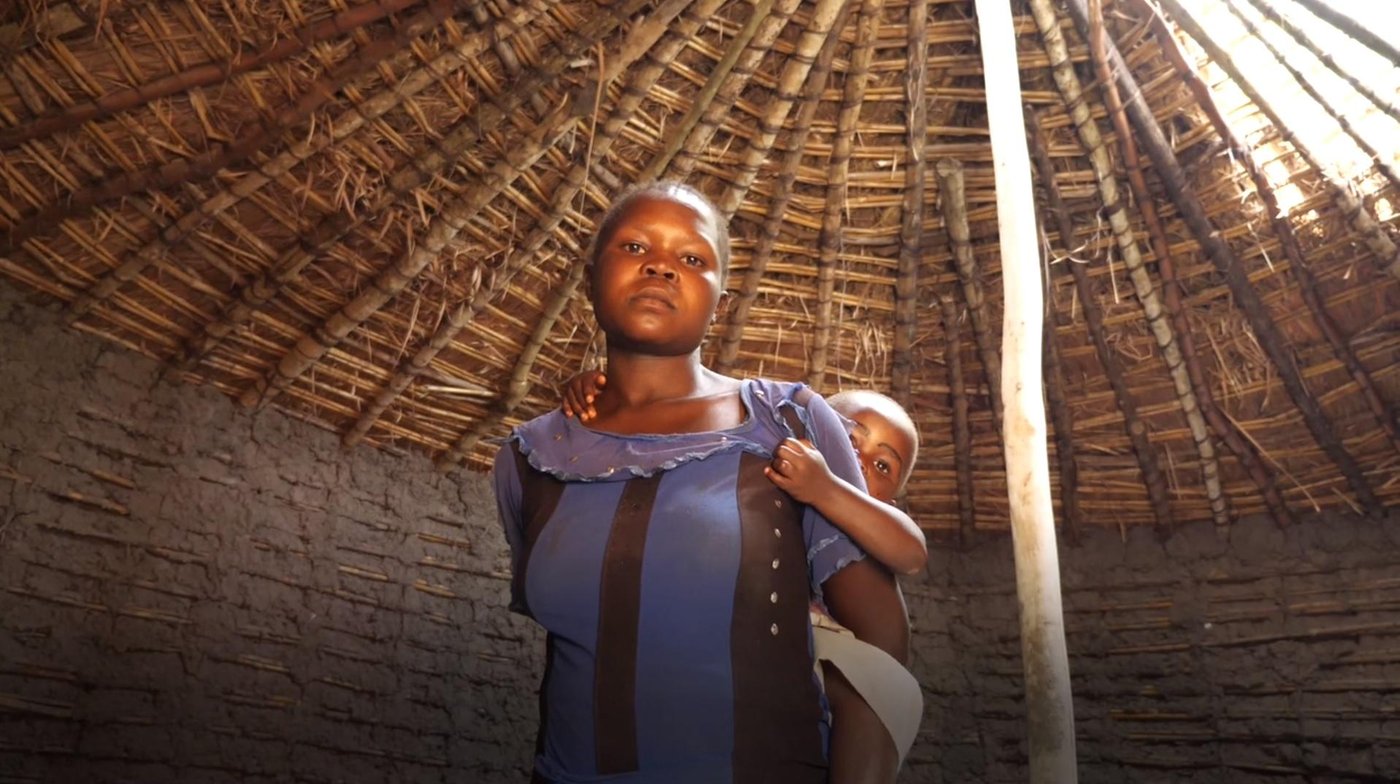
Pathways to lasting solutions: from displacement to local integration
With the support of USAID’s Office of US Foreign Disaster Assistance (OFDA), NRC set out to support the local integration of the 324 displaced families that decided to remain in Irumu.
After an initial rapid analysis to better understand the legal situation, our legal team organised awareness-raising sessions for displaced people on land acquisition procedures and the importance of land records. The teams simultaneously briefed local authorities on the guiding principles related to the treatment of internally displaced people and created a network of people to persuade the authorities of the benefits of acting in favour of the displaced.
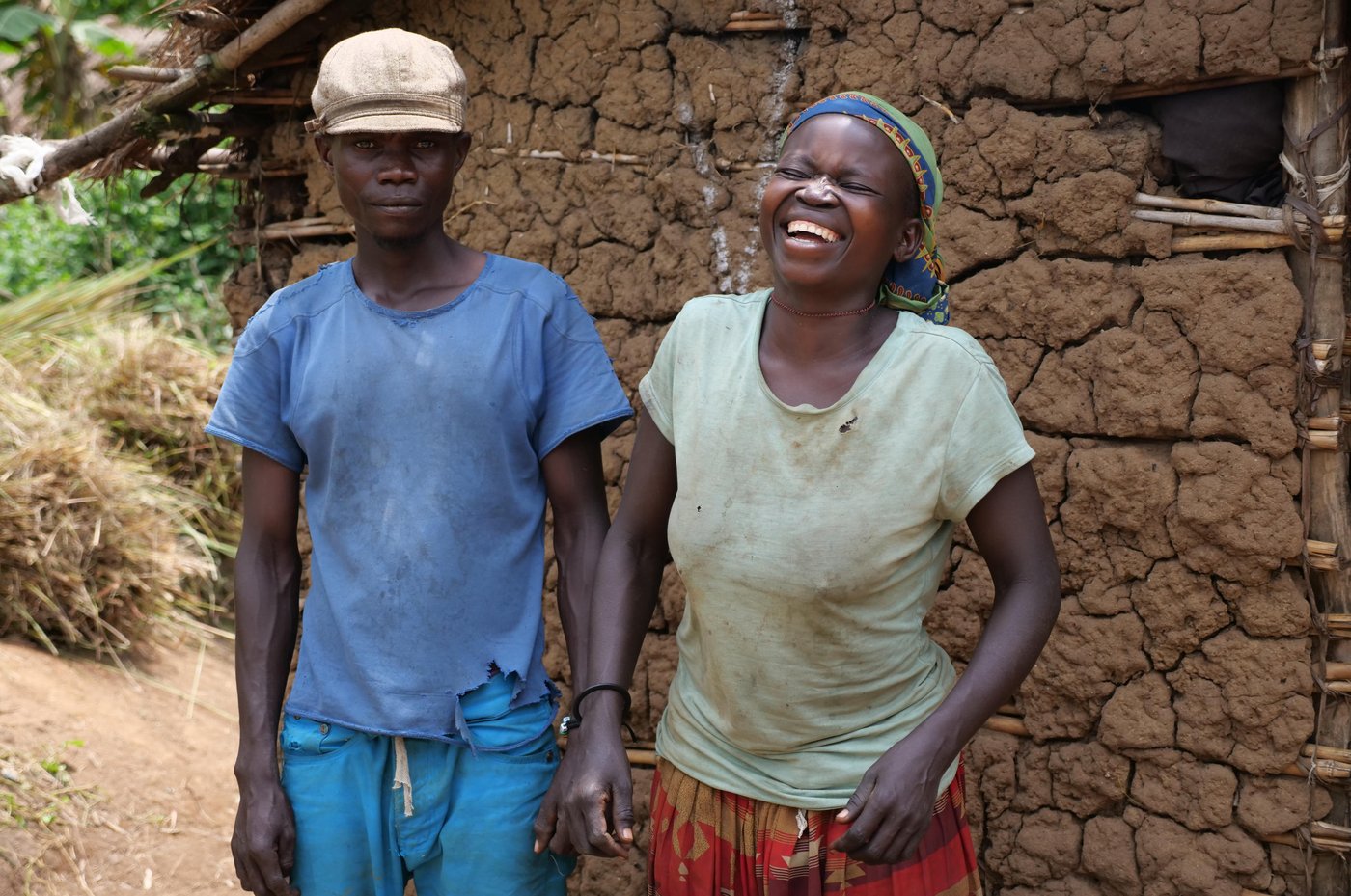
These efforts were successful and the local authorities, using customary laws, granted plots of land to each of the 324 families. NRC assisted with the measuring and demarcation of the plots and helped the families obtain land titles declaring their ownership. NRC also provided training for these newly integrated families on various topics such as how best to cohabit with their host communities.
Emmanuel is thrilled. “I am now no longer a displaced person, I am now locally integrated here,” he declares proudly.
Cash and technical support to build homes
Our support did not end there. We also provided cash assistance to each of the families so that they could begin constructing houses on their new plots of land. We chose cash because our experience and market research showed that an injection of cash could boost the local economy. Households used the cash to purchase materials locally and they constructed their houses in the local style.
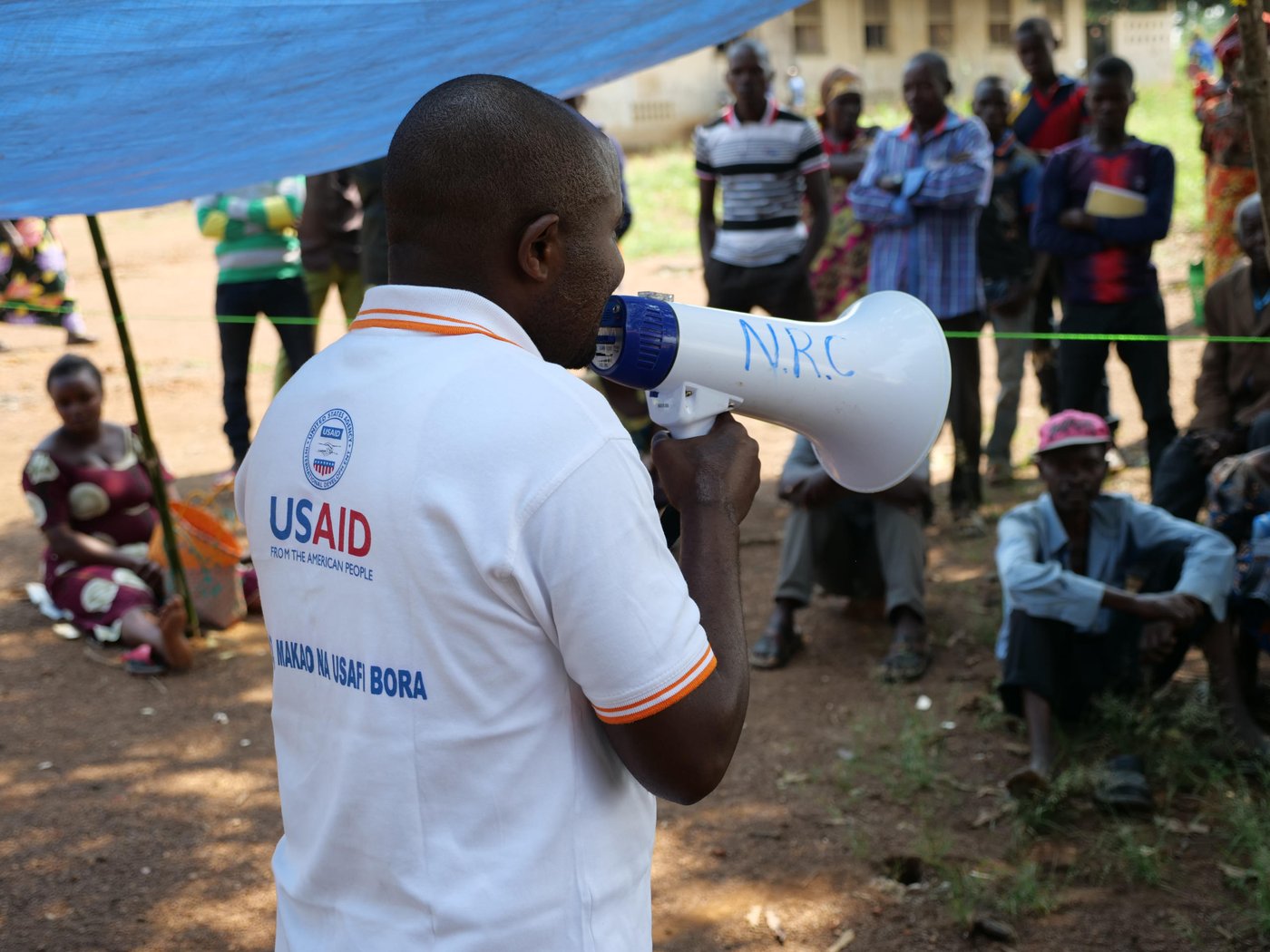
As Emmanuel Mbutyabo finished queuing for his cash assistance, the look of relief in his eyes was clearly visible. After living through a nightmare, he now has a plot of land to his name and cash to begin constructing a home.
“We are very happy to have received this support from NRC,” he says, “because we are sure that our construction is going to be completed.”
As part of the support package, we offered training on shelter construction with a focus on water, hygiene and sanitation, including advice on how to dig septic pits for improved latrines.
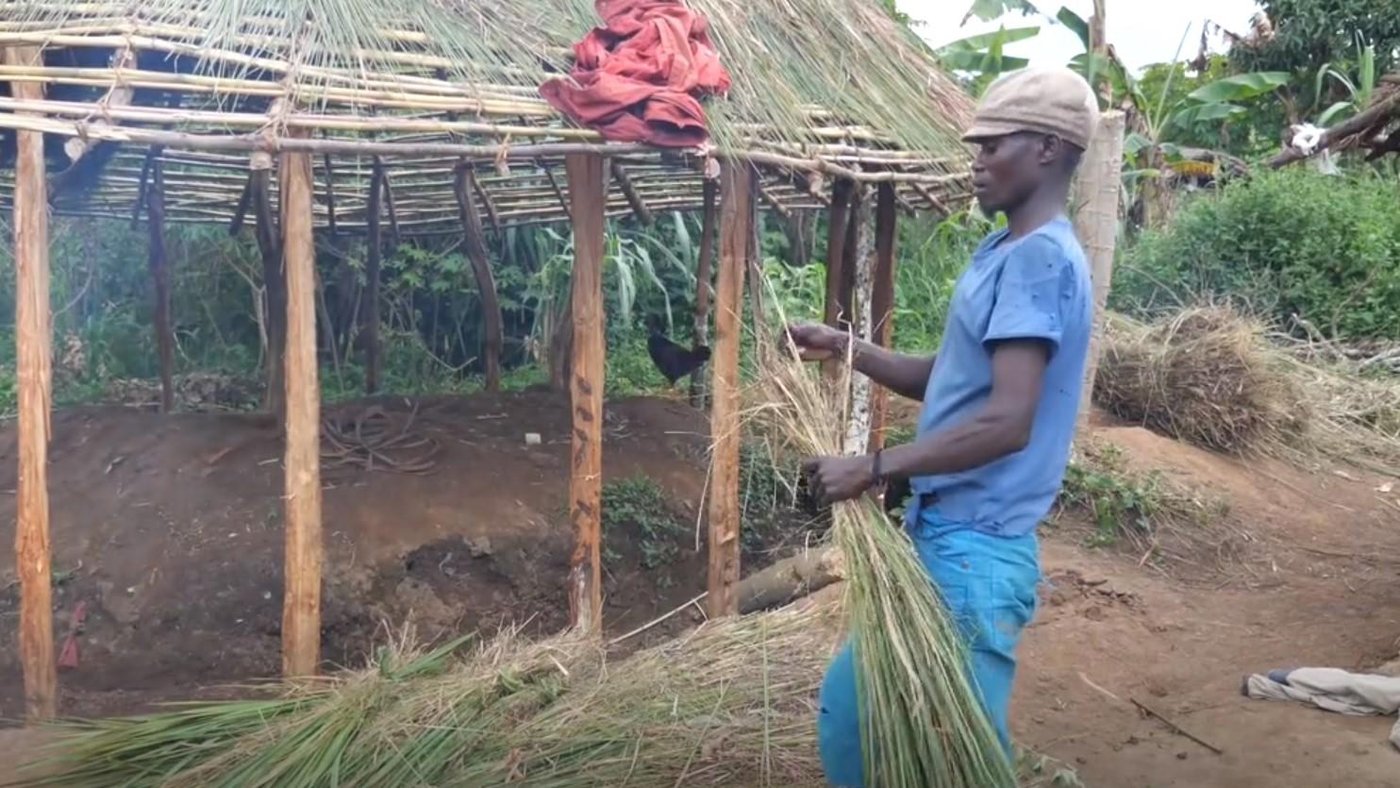
Overrun with wild bushes
In addition to supporting the local integration of displaced families, NRC is also assisting those families that did in fact decide to return to their villages. In the neighbouring village of Sisa, we meet Paul Djawi Gaya, 40. He fled his village with his mother, wife and children to a displacement site in Getty. After hearing reports of an improved security situation in his village, he voluntarily decided to return home.
He recalls: “My mother was sick and I noticed that things weren’t getting better for her at the displacement site. I decided to return home to my village with my whole family. I didn’t want my mother to die at a displacement site.”
Esperance Baneki has a similar story. She chose to return to Sisa because she wanted to resume growing her crops and give her children a chance to start school.
But Paul and Esperance had a shock in store. Their old village was nothing like they remembered it. Houses had been torched, and the entire place was overrun with wild bushes. Though happy to be home, they knew that their return would not be easy.
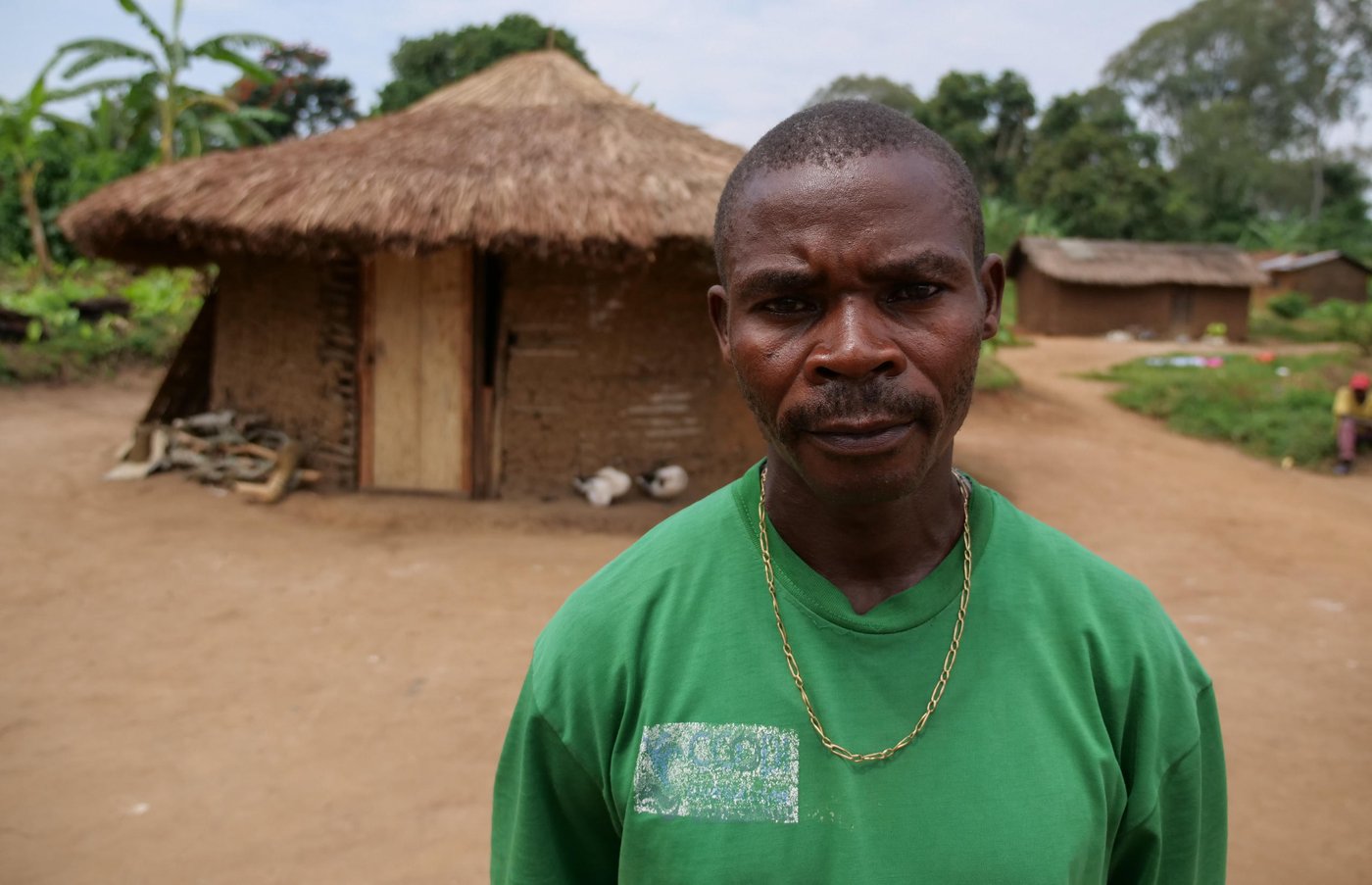
They were both delighted, therefore, to learn that NRC would support them. Esperance used the cash assistance she received to pay for construction materials and labourers to rebuild her house and build an improved latrine.
She says: “When I learned that NRC was going to provide us with this support, I was very proud and happy, and it gave me the motivation to rebuild the house.”
A complex solution to a complex problem
NRC’s work with these communities is part of a multi-faceted project financed by OFDA. In addition to the legal assistance, housing assistance and hygiene promotion, the project also includes mediation efforts to help improve the protection needs of returnees in their villages.
Humanitarian Mediation is an NRC pilot initiative that aims to reduce tensions and prevent new episodes of violence between communities. Our staff facilitate an impartial dialogue between all the parties involved in a conflict or dispute. The purpose is to facilitate discussion so that communities can find their own solutions to their problems.
These interventions have many components because the challenges that the communities face are complex. With the assistance received, these communities will now have a leg up as they begin the difficult process of rebuilding their lives – either as locally integrated members of new communities or in their villages of origin after several years away.
Read more about NRC's work in DR Congo
***
About the donor
These projects are funded by USAID’s Office of US Foreign Disaster Assistance (OFDA). This assistance is made possible thanks to the generous support of the American people.


